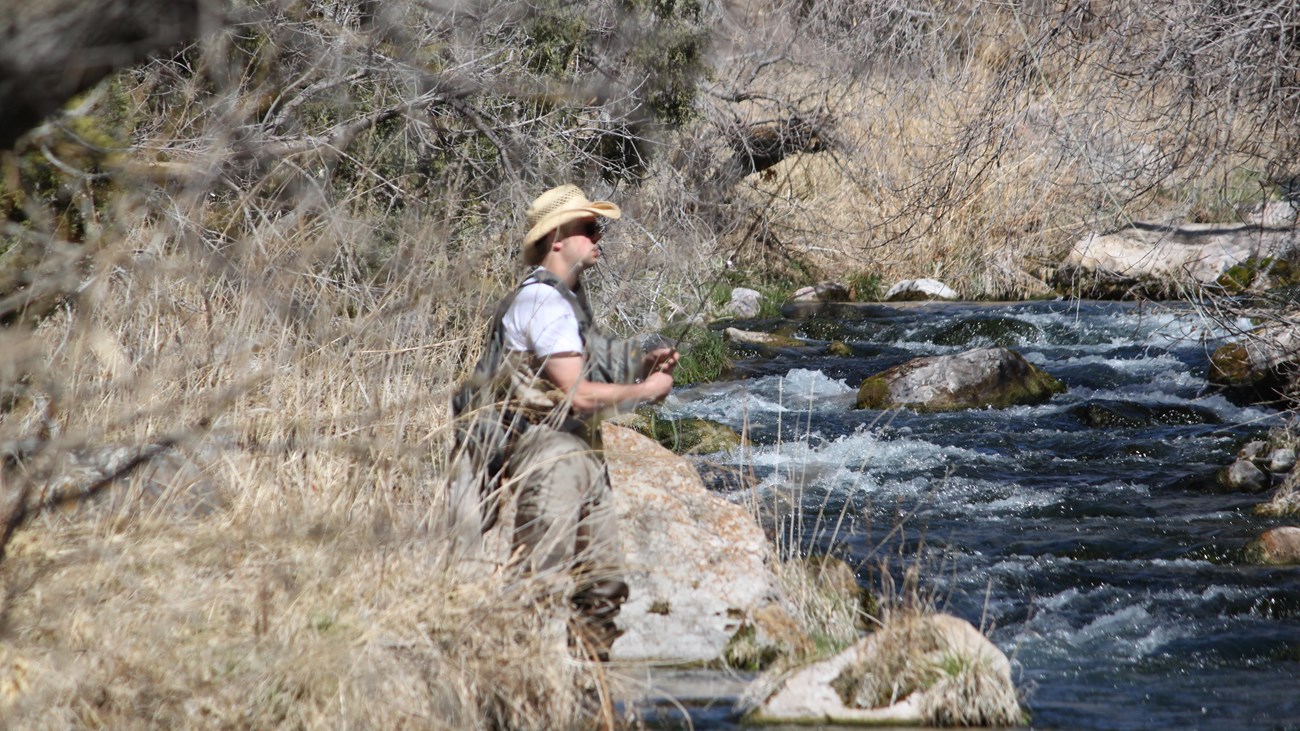Last updated: March 2, 2021
Thing to Do
Fishing at Dinosaur National Monument

NPS Photo
Dinosaur National Monument allows fishing as a means of providing for public enjoyment, and customary and traditional use, and regulates fishing to ensure that it is managed in a manner that avoids unacceptable impacts to park resources.
For more information on how fishing regulations work in national parks, go to the NPS Fish and Fishing website.
Licenses
Visitors fishing within Dinosaur National Monument must follow the fishing license requirements in accordance with the laws and regulations of the State, within whose exterior boundaries a park area or portion thereof is located.
Fishing Regulations
Except as provided below, fishing shall be in accordance with the laws and regulations of the State, within whose exterior boundaries a park area or portion thereof is located (36CFR2.3).
For Colorado State fishing regulations go to the Colorado Parks and Wildlife website.
For Utah State fishing regulations go to the Utah Division of Wildlife Resources website.
The fishing regulations apply to all “finfish” found in the park. Other taxa, including amphibians, mollusks and crustaceans (e.g. waterdogs, crayfish) are not considered “fish” for the purpose of NPS fishing regulations and addressed by NPS regulations governing “wild life” (36CFR2.2).
These fishing regulations apply, regardless of land ownership, on all lands and waters within the park that are under the legislative jurisdiction of the United States.
The following are prohibited:
-
Fishing in fresh waters in any manner other than by hook and line, with the rod or line being closely attended.
-
Possessing or using as bait for fishing in freshwaters, live or dead minnows or other bait fish, amphibians, non-preserved fish eggs or fish roe, except in designated waters.
-
Chumming or placing preserved or fresh fish eggs, fish roe, food, fish parts, chemicals, or other foreign substances in fresh waters for the purpose of feeding or attracting fish in order that they may be taken.
-
Commercial fishing, except where specifically authorized by Federal statutory law.
-
Fishing by the use of drugs, poisons, explosives, or electricity.
-
Digging for bait, except in privately owned lands.
-
Failing to return carefully and immediately to the water from which it was taken a fish that does not meet size or species restrictions or that the person chooses not to keep. Fish so released shall not be included in the catch or possession limit: Provided, that at the time of catching the person did not possess the legal limit of fish.
-
Fishing from motor road bridges, from or within 200 feet of a public raft or float designated for water sports, or within the limits of locations designated as swimming beaches, surfing areas, or public boat docks, except in designated areas.
-
Introducing wildlife, fish or plants, including their reproductive bodies, into a park area ecosystem. This includes the discarding and/or dumping of bait and bait buckets.
-
The use or possession of fish, wildlife or plants for ceremonial or religious purposes, except where specifically authorized by Federal statutory law, or treaty rights.
Fishing is permitted, subject to all state regulations and licenses of the state in which the person is fishing.
